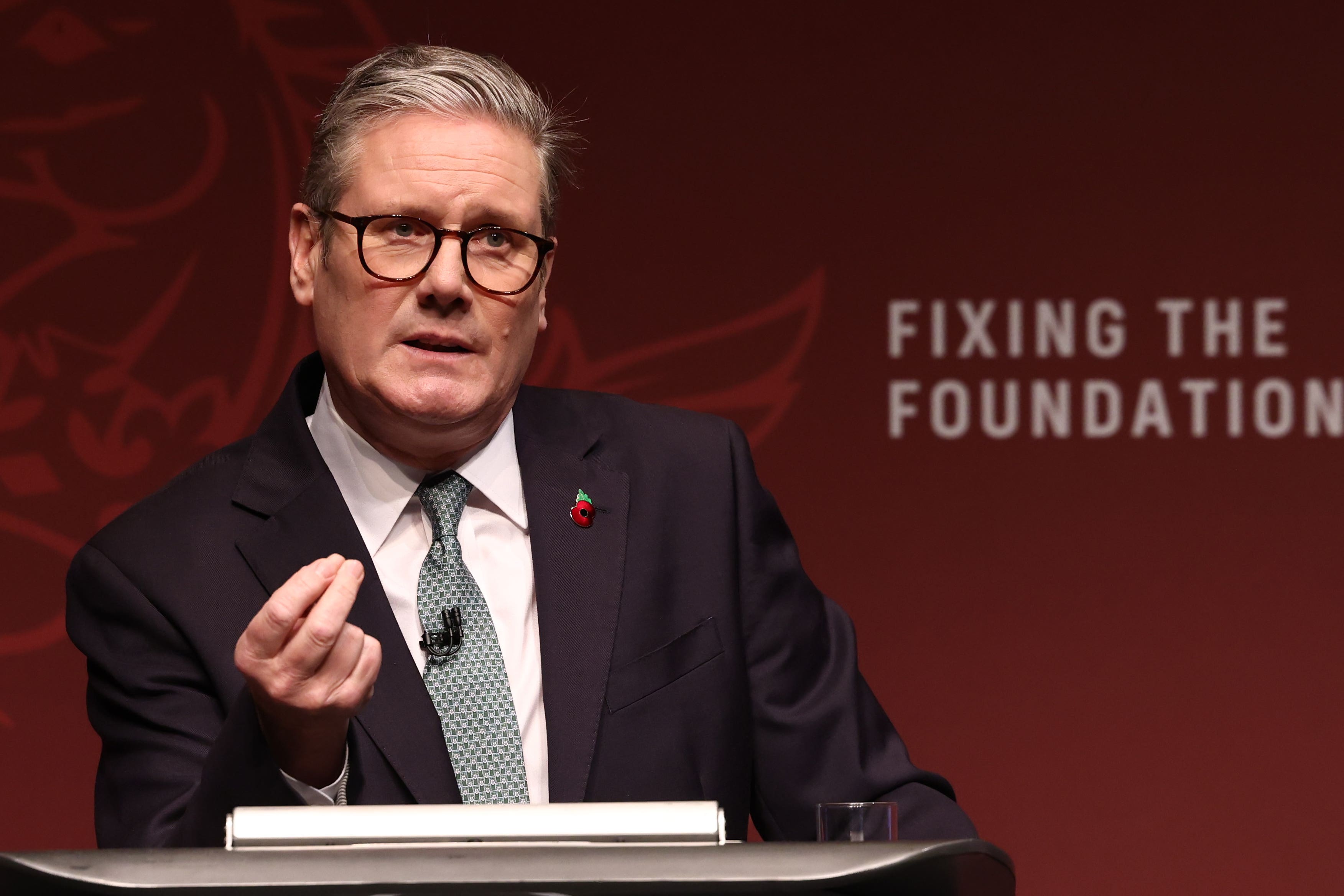The cap on bus fares will rise from £2 to £3 until the end of next year in a bid to ease pressure on the public finances, Sir Keir Starmer has confirmed.
Laying the groundwork for Wednesday’s Budget, the prime minister said the existing cap will be replaced by the higher fare limit.
In a speech in Birmingham, Sir Keir said he knows "how much this matters", particularly to people who live in rural communities, but he lashed out at the previous Conservative government, saying they “only funded £2 bus fares until the end of 2024”.
“That is the end of the funding in relation to a £2 capped fare,” he added.
Sir Keir said: "That’s why I’m able to say to you this morning that in the Budget we will announce there will be a £3 cap on bus fares to the end of 2025 because I know how important it is.”
Single bus fares in England have been capped at £2 outside London, where they are £1.75 per journey, for most routes, since January 2023.
Sir Keir indicated the hike will be announced at Rachel Reeves’ Budget on Wednesday as the government tries to plug a £22bn hole in the public finances.
The Liberal Democrats branded the change a “bus tax” that will hit small businesses and hold back economic growth.
Environment spokesman Tim Farron said: “While this new government has been left to make difficult choices, they cannot allow the burden of fixing the Conservatives’ mess to be on people and small businesses across the country.
“The fundamental issue that neither Labour nor the Conservatives before them seemed to understand is that for rural communities, it doesn’t matter if the cap is £2 or £3 if they don’t have a bus service in the first place.
“Bus routes are the backbone of economic activity in communities across our country - if the Government is serious about growth then it would invest in services which will boost our struggling town centres and high streets.”
And Greenpeace condemned Sir Keir’s decision to hike the bus fare cap, saying it “makes no political, economical or environmental sense whatsoever”.
“This is a ‘tough decision’ the government did not need to make,” senior transport campaigner Paul Morozzo said.
He added: “Not only are buses a critical lifeline to millions of people - particularly those on lower incomes - and the use of them a driver of economic growth, but it’s absolutely critical that we get more people out of polluting cars and onto cleaner public transport if we have any chance of tackling the climate crisis. Raising the fares by 50% will obviously won’t help achieve that.
“A government that was truly prioritising the needs of the poorest in society would rethink this decision at the first opportunity, and provide young people especially the possibility to reach education and employment they would otherwise be shut out from”.
In the same speech, Sir Keir also said that the chancellor will announce £240m in funding for local services to help get people back to work when she delivers her fiscal statement in two days’ time.
The prime minister said the UK is "the only G7 country for whom economic inactivity is still higher than it was before Covid".

"That’s not just bad for our economy," he said. "It’s also bad for all those who are locked out of opportunity.
"So the chancellor will announce £240 million in funding to provide local services that can help people back into work."
The prime minister also set out his approach to a Budget for "working people".
Ministers have been facing repeated questions over the government’s definition of "working people", after Labour’s election manifesto pledged not to increase taxes on working people - explicitly ruling out a rise in VAT, national insurance and income tax.
They have come under pressure to spell out precisely who would and would not fall under this definition, given the extent of expected tax rises due to be announced this week.
Sir Keir told the audience in Birmingham: "Trust in my project to return Britain to the service of working people can only be earned through actions, not words.
"Change must be felt. But every decision that we have made, every decision that we will make in the future, will be made with working people in our mind’s eye, people who have been working harder and harder for years just to stand still.
"People doing the right thing, maybe still finding a little bit of money to put away, paying their way, even in the cost-of-living crisis.
"But who feel that this country no longer gives them or all their children a fair chance.
"People stuck on an NHS waiting list, whose town centre is blighted by antisocial behaviour, who can’t afford to buy a place that they can call home, or can’t afford the home they have because of the mortgage bombshell."







